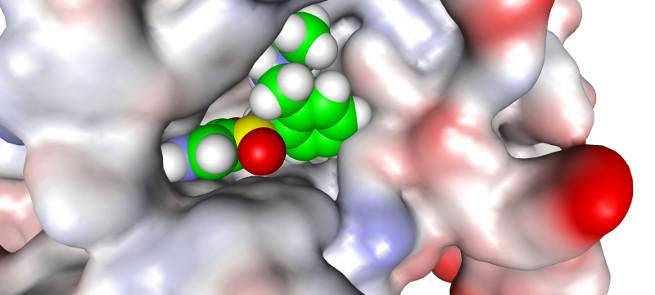- About
-
Services
-
Offerings
- Offerings
- ADME and Bioanalytical Sciences
- Analytical Chemistry
- Assay Development
- Biochemical Assays
- Biophysical Assays
- Cell Based Assays
- Computational Chemistry
- Fragment and Compound Screening
- Integrated Drug Discovery Services
- Medicinal Chemistry
- Project Management and Consultancy Services
- Protein Expression and Purification Services
- Structural Biology
- Synthetic Chemistry
- Virtual screening
-
Research Phases
- Research Phases
- Hit Identification
- Hit to Lead
- Lead Optimisation
- Therapeutic Areas
- Target Classes
-
Approaches & Techniques
- Approaches & Techniques
- CDH (Target Gene Fragmentation)
- Cryogenic Electron Microscopy (Cryo-EM)
- Differential Scanning Fluorimetry (DSF) and nanoDSF Services
- Direct-to-Biology (D2B)
- Dynamic Light Scattering (DLS)
- eProtein Discovery
- Flow Cytometry
- Fragment Based Drug Discovery (FBDD)
- FragmentBuilder
- Grating-Coupled Interferometry
- High Throughput Screening
- Isothermal Titration Calorimetry (ITC)
- LeadBuilder
- PoLiPa (Membrane Protein Solubilisation)
- Spectral Shift and MST Services
- Structure Based Drug Design (SBDD)
- Surface Plasmon Resonance (SPR)
- X-ray Crystallography
-
Offerings
- Library
- News & Events
- Careers
LeadBuilder – Virtual Screening
Highly efficient hit identification technology

LeadBuilder is Domainex’s virtual screening platform that has allowed us to identify small-molecule starting points for a large number of drug discovery programmes on behalf of our partners against a diverse range of biological disease targets. In some instances it has ultimately enabled projects to move into drug development.
The LeadBuilder hit identification platform is very successful and highly efficient because our approach to virtual, or in silico, screening compounds is differentiated in two important ways.
Firstly, we carefully curate our database to ensure that all of the compounds are 'developable'. This means that when hits are identified by Domainex, you can be confident that physicochemical or ADME properties are unlikely to be a barrier to progressing your drug discovery programme.
Secondly, we test many different pharmacophore hypotheses with our virtual screening filters. We know that it is impossible to predict exactly how a ligand will interact with its target protein, so we try a range of different possibilities. This maximises our chances of success and gives us a diverse set of compounds that can be tested in biochemical, biophysical or cellular assays.
Key advantages of LeadBuilder
- No need to physically screen 100,000s of compounds. Typically, only ~1000 compounds are screened to identify hits
- Hits are pre-curated to ensure 'developability' and streamline hit-to-lead chemistry
- It's fast! It takes only a matter of weeks to identify confirmed assay hits
- It is successful: we have a >90% success rate in finding assay hits across target classes
- Homology models or ligand-based pharmacophores can enable a screening set to be identified even when protein target structural information is absent
High hit rate and success across target classes
LeadBuilder has been used successfully by Domainex to identify focussed screening sets which have a high hit rate in biological assays. Our hit-finding success rate is >90% across targets as diverse as kinases, protein-protein interactions, ion-channels, proteases and lysine methyltransferases. Many of these programmes have been successfully progressed to the candidate drug stage by our medicinal chemists, with a selection currently in the clinic.
A typical random screen of 100,000s compounds might have a biochemical assay hit rate of 0.1–1%, whereas we often find that LeadBuilder affords hit rates of between 1–10% with screening sets of just 1000 compounds. In the two cases where our clients made side-by-side comparisons of LeadBuilder with other vendors’ proprietary gene-family focussed libraries, the LeadBuilder set gave 10-fold higher hit rates. Furthermore, the excellent property profile of LeadBuilder hits means that they are suitable for rapid progression towards candidate drugs.
For an example of a project where we have successfully progressed LeadBuilder hits see Tankyrase: Inhibitors for the treatment of solid tumours. The programme resulted in both a lead and backup series being taken into preclinical development and was successfully partnered with Merck Serono.

Download the Brochure
One of the keys to success in drug discovery is generating highquality chemical starting points for lead optimisation. LeadBuilder is a proprietary virtual screening platform that you can access to deliver such starting points in an efficient, timely and cost-effective manner on targets for which there is sufficient precedent (i.e. a known crystal structure or existing ligands)...
Case studies
Start your next project with Domainex
Contact one of our experts today